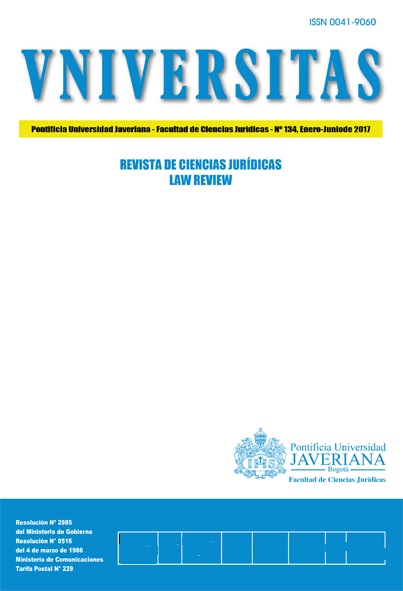Abstract
This paper looks into how widespread surveillance impacts the idea of innocence. It weighs the advantages of such surveillance against the serious ethical issues it brings up. Monitoring can be beneficial for law enforcement helping to identify innocent individuals and clear their names. However, it also raises serious concerns about privacy violations and the risk of false accusations. These issues tend to affect vulnerable groups the most leading to greater harm for those already at a disadvantage. The research uses examples from different countries to show the ethical and legal issues that come with widespread monitoring. The findings suggest that while surveillance can help reduce crime it often infringes on personal freedoms and creates an atmosphere where people feel like they are always being watched. This article argues that we need strong laws and better privacy protections. These are crucial to make sure that surveillance is fair and doesn’t violate people’s rights. We need to take legislative action to ensure that monitoring systems are properly regulated. This will help protect against any potential misuse of these systems.
Alan Bryman, Social Research Methods (5th ed., Oxford Univ. Press, 2016).
Amnesty Int’l, Data Privacy and Surveillance in China: The Impact of the Personal Information Protection Law (PIPL) (2022). https://www.amnesty.org (last visited Nov. 18, 2024).
Amnesty Int’l, Misuse of Facial Recognition Technology in Russia: A Report on Wrongful Detentions (2023). https://www.amnesty.org (last visited Nov. 18, 2024).
Avishai Margalit, The Ethics of Memory (Harvard Univ. Press, 2002).
Brian Stewart, Balancing Security and Privacy in the Digital Age (Routledge, 2014).
Cameron Kerry, Privacy in the Age of Big Data: Analyzing Legal Implications (Brookings Inst. Press, 2020).
Christian Fuchs, Social Media: A Critical Introduction (2d ed., SAGE Publ’ns, 2017).
Colin J. Bennett & Charles D. Raab, The Privacy Advocates: Resisting the Spread of Surveillance (MIT Press, 2018).
Daniel J. Solove, Understanding Privacy (Harvard Univ. Press, 2021).
David Johnston, Surveillance Capitalism and the Crisis of Democracy, 29 Pub. Culture 48 (2017).
David Lyon, Surveillance Studies: The New Era of Digital Oversight (Cambridge Univ. Press, 2022). https://doi.org/10.1017/9781108768178
David Murakami Wood & William Webster, Surveillance and Society: Legal and Ethical Challenges (Routledge, 2019).
Edward Snowden, Permanent Record (Metropolitan Books 2013).
Erin G. Mistretta et al., Resilience Training for Work-Related Stress Among Health Care Workers: Results of a Randomized Clinical Trial Comparing In-Person and Smartphone-Delivered Interventions, 60 J. Occupational & Envtl. Med. 559, 559-565 (2018), https://doi.org/10.1097/JOM.0000000000001285
Eur. Ct. H.R., Privacy and Surveillance in Europe: Legal Guidelines (2008).
Glenn Greenwald, No Place to Hide: Edward Snowden, the NSA, and the U.S. Surveillance State (Metropolitan Books, 2014).
Human Rights Watch, China’s Social Credit System: Impacts on Civil Liberties (2022). https://www.hrw.org (last visited Nov. 18, 2024).
Info. Comm’r’s Off., Impact of the Investigatory Powers Act on Data Privacy (2022). https://ico.org.uk (last visited Nov. 18, 2024).
James Campbell, Surveillance, Power, and the Politics of Freedom (Univ. of Toronto Press, 2010).
Jonathan Kimmelman, Risk and Consent in Clinical Trials, 10 J. Bioethics 150 (2000).
Joop J. Hox & Hennie R. Boeije, Data Collection, Primary vs. Secondary, in Encyclopedia of Social Measurement 593 (2005).
Kirstie Hadjimatheou, Surveillance and the Presumption of Innocence, 41 J.L. & Soc’y 30 (2014). https://doi.org/10.1111/j.1467-6478.2014.00659.x
Lorelli S. Nowell et al., Thematic Analysis: Striving to Meet the Trustworthiness Criteria, 16 Int’l J. Qual. Methods 1 (2017). https://doi.org/10.1177/1609406917733847
Metropolitan Police Service, CCTV Misidentification Report (2020). https://www.met.police.uk/sd/stats-and-data/
Minxin Zeng, Social Credit and the Rule of Law in China, 6 Asian J.L. & Soc’y 123 (2019).
Norman K. Denzin & Yvonna S. Lincoln, The SAGE Handbook of Qualitative Research (4th ed., SAGE Publ’ns 2011).
P. Bou-Habib, Security, Profiling, and Equality, 11 Ethical Theory & Moral Prac. 149 (2008).
Pew Rsch. Ctr., Public Concerns About China’s Social Credit System: A Survey Analysis (2022). https://www.pewresearch.org (last visited Nov. 18, 2024).
Privacy Int’l, Facial Recognition and Wrongful Detentions in Russia (2020). https://www.privacyinternational.org (last visited Nov. 18, 2024).
Robert K. Yin, Case Study Research and Applications: Design and Methods (6th ed., SAGE Publ’ns, 2018).
Rogier Creemers, China’s Social Credit System: A Practice of Control, 4 J. Chinese Governance 45 (2018). https://doi.org/10.1080/23812346.2018.1443762
Rohan Samarajiva & Dan Weeramantry, Global Impacts of Mass Surveillance (Oxford Univ. Press, 2020).
Russ. Pub. Op. Rsch. Ctr., Survey on Public Concerns Regarding Facial Recognition Technology (2020).
Shoshana Zuboff, The Age of Surveillance Capitalism: The Fight for a Human Future at the New Frontier of Power (PublicAffairs, 2019).
Stephen L. Roberts & Eleanor Marchant, Incorporating Non-Expert Evidence into Surveillance and Early Detection of Public Health Emergencies, Social Science in Humanitarian Action (2020). https://eprints.lse.ac.uk/104427/
Steven Feldstein, The Rise of Digital Authoritarianism: Implications for Civil Liberties, 12 Democracy & Digital Rights J. 89 (2020). https://doi.org/10.1353/ddr.2020.0010
Tara DeAngelis, The Psychology of Privacy Concerns, Am. Psychol. Ass’n. https://www.apa.org (last visited Nov. 18, 2024).
Toshio Yamagishi, Trust: The Evolutionary Game of Mind and Society (Springer, 2011).
U.N. Human Rts. Council, Report on the Right to Privacy in the Digital Age (2013).
U.S. Gov’t Accountability Off., Review of the USA FREEDOM Act’s Impact on Surveillance Practices (2018). https://www.gao.gov (last visited Nov. 18, 2024).
Virginia Braun & Victoria Clarke, Using Thematic Analysis in Psychology, 3 Qual. Res. Psychol. 77 (2006), https://doi.org/10.1191/1478088706qp063oa

Dieses Werk steht unter der Lizenz Creative Commons Namensnennung 4.0 International.



